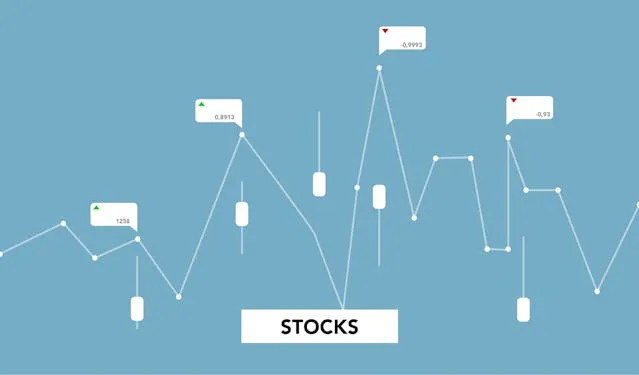What is collateral?
Suppose that you want to take a loan from a bank or anybody else. So, in this case, the lender wants to ensure that the money that they have given will be repaid to them. For that, the lender asks you to provide anything valuable like your home, jewelry, car, or any asset. This valuable is called Collateral. Understand collateral as a security deposit.
So, in any circumstance if you fail to pay the money back to the lender, then the lender can take the possession of the valuables i.e collateral to recover their money.
What is mutual fund in simple words?
In Mutual Funds , instead of investing in individual stocks or bonds, individuals can invest money into a pool of investment along with other investors . A team of professional manager manages this money for better investment and growth . So instead of investing in one stock or bond, the money is distributed in different pools of investment and this potentially reduces the risk over a while.

What is collateral in a mutual fund?
Let’s understand collateral in mutual funds.
Few mutual funds are involved in some financial transactions like borrowing money for additional investment or participating in some derivative contracts , due to this at certain times mutual funds use collateral.
In this situation, collateral indicates to assets that a borrower, i.e. the mutual fund promises to secure a loan. These assets or valuables , that give reassurance to the lender that if the mutual fund fails to repay the loan , then the lender can sell the collateral ( assets or valuables) to recover the borrowed money.
How Does Collateral Work in Mutual Funds?
Suppose that a mutual fund likes to be involved in a certain financial transaction and this financial transaction requires some money as a loan, in this case, to get money as a loan, the mutual fund can offer some assets in the form of its securities (that is stocks or bonds) as a collateral to the lender.
These securities will act like a re-assurance for the lender and if the mutual fund doesn’t pay the money, a lender can use these securities to get their money back.
Hope this is clear to you.

When can mutual funds be used as collateral?
1. Fund Raise: Collateral helps the mutual funds to lend money as and when required & these additional funds can be very helpful in making more investments.
2. Lower Interest Rates: By offering collateral to the lender, mutual funds, negotiate for lower interest rates on loans. Also, this reduces the risk of the lender as they have some security against the given loan.
3. Reduces Risk to a lender: In the form of collateral, it reduces the risk of the lender on the given loan. Lenders can recover the money by selling the collateral, in case the value of the mutual fund’s investments goes down.
4. Liquidity: In some situations, collateral provides liquidity to the mutual fund by enabling it to meet short-term financial commitments.

Can I Use Mutual Funds as Collateral?
Yes, mutual funds can be used as collateral in two main ways:
Loan against Mutual Funds:
- You can use your mutual fund units as security to lend money as a loan.
- You can get a loan ranging from 50% to 70% of the net asset value (NAV) of your pledged units of the mutual fund from the lender’s terms and conditions.
- Your mutual funds will keep on moving as per the market but you cannot sell the pledged units.
As you cannot sell the pledged units, there is risk involved as mentioned
- Market risk: If there is a significant decrement in the value of your pledged units then you might have to add more units as collateral or repay part of the loan. This needs to be done to maintain the required loan-to-value (LTV) ratio.
- Interest charges: You have to pay interest on the loan amount as well.
- Margin for Trading: Few brokers give the option to pledge mutual fund units to get additional margin for trading in derivatives. But this increased purchasing power comes with some risks as per Market fluctuations.
Important points:-
All mutual funds are not considered as collateral. The lender or broker has their specific criteria on fund type, liquidity, and creditworthiness. Like
- Loan-to-value ratio (LTV) offered by different lenders can change.
- If the Loan-to-value ratio is low, then you might get a small loan.
- Also recheck the terms and conditions before using mutual funds as collateral i.e. factors like interest rates, fees, etc.
So, before making any decision take advice from an expert financial advisor.
What is collateral for example?
- Suppose that you don’t have any upfront payment to purchase a new bike but the bike shop owner helps you in getting the loan to purchase the bike. Since you don’t have an upfront payment, they’re going to ask you to leave your old bike as collateral. Thus the shop owner reduces its risk of losing the money by taking your old bike to cover his loss.
- The new home that is purchased through a loan, then home is itself treated as collateral. It is that it won’t pay the lol the bank can check the custody of the home and can sell to recover the money.
- Similarly, if you purchase a new car, the car is itself treated as collateral.
Why do lenders ask for collateral?
Lenders require or ask for collateral to reduce their risk, if the loan gets defaulted.
For more information on various financial regulations and guidelines in India . You can visit Securities and Exchange Board of India (SEBI)
Conclusion
Please note that there are some regulations and guidelines set by regulatory authorities that ensure the protection of investor financial stability and according to that use of collateral in mutual funds is done by the institutions.
So, the purpose of Collateral in mutual funds is to protect and give security to lenders, also mutual funds can get additional funds. Therefore by understanding the collateral, investors can make their better decision to invest in mutual funds.



